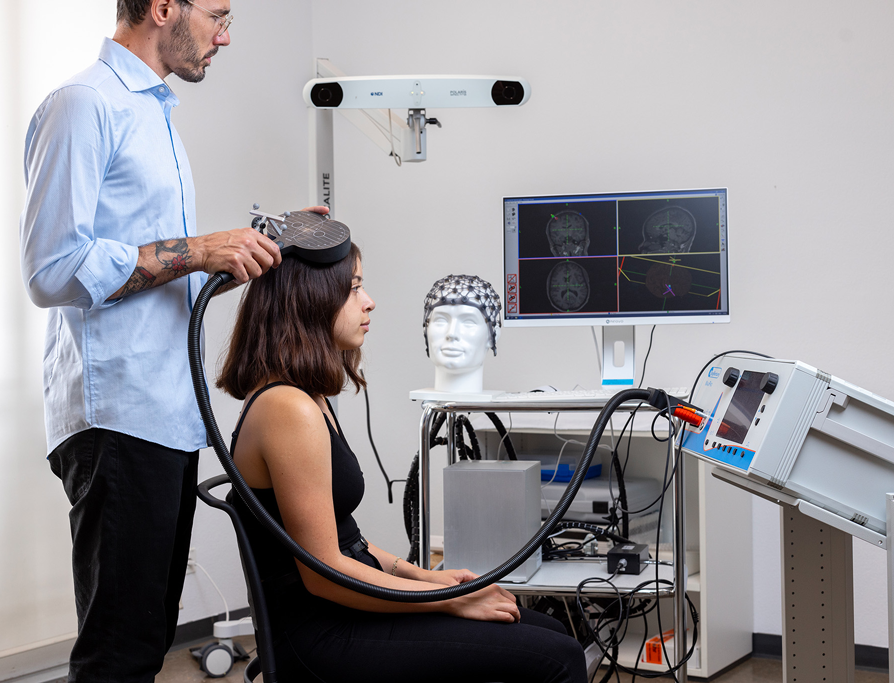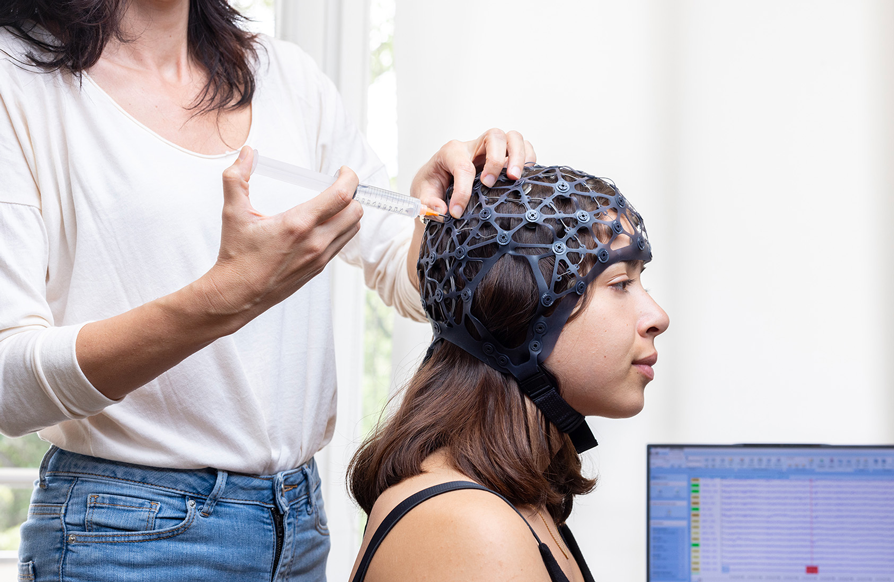[910] Neurorehabilitation & Neuromodulation
Neurological and cognitive deficits are common after brain injury and very disabling. Intensive training and rehabilitation can lead to improvement, but selecting effective treatment strategies for individual patients is often difficult due to insufficient knowledge of how the human brain can recover lost function. Understanding the complex mechanisms of brain plasticity underlying recovery is essential to advance therapeutic approaches and improve outcomes for these patients.
In our research laboratory, we use non-invasive neuroimaging techniques to study the structural and functional aspects of brain plasticity. These findings underline the crucial need for new rehabilitation strategies that prioritize the restoration of disrupted connections and interactions between two or more brain areas.
Our lab is developing neuromodulation strategies that go beyond targeting individual brain areas. Instead, we focus on modulating the intricate network communication crucial for optimal recovery outcomes. By combining a detailed understanding of patient needs and brain plasticity with innovative neuromodulation approaches, we strive to pave the way for more effective, personalized rehabilitation strategies that significantly enhance the lives of individuals recovering from brain injuries.


